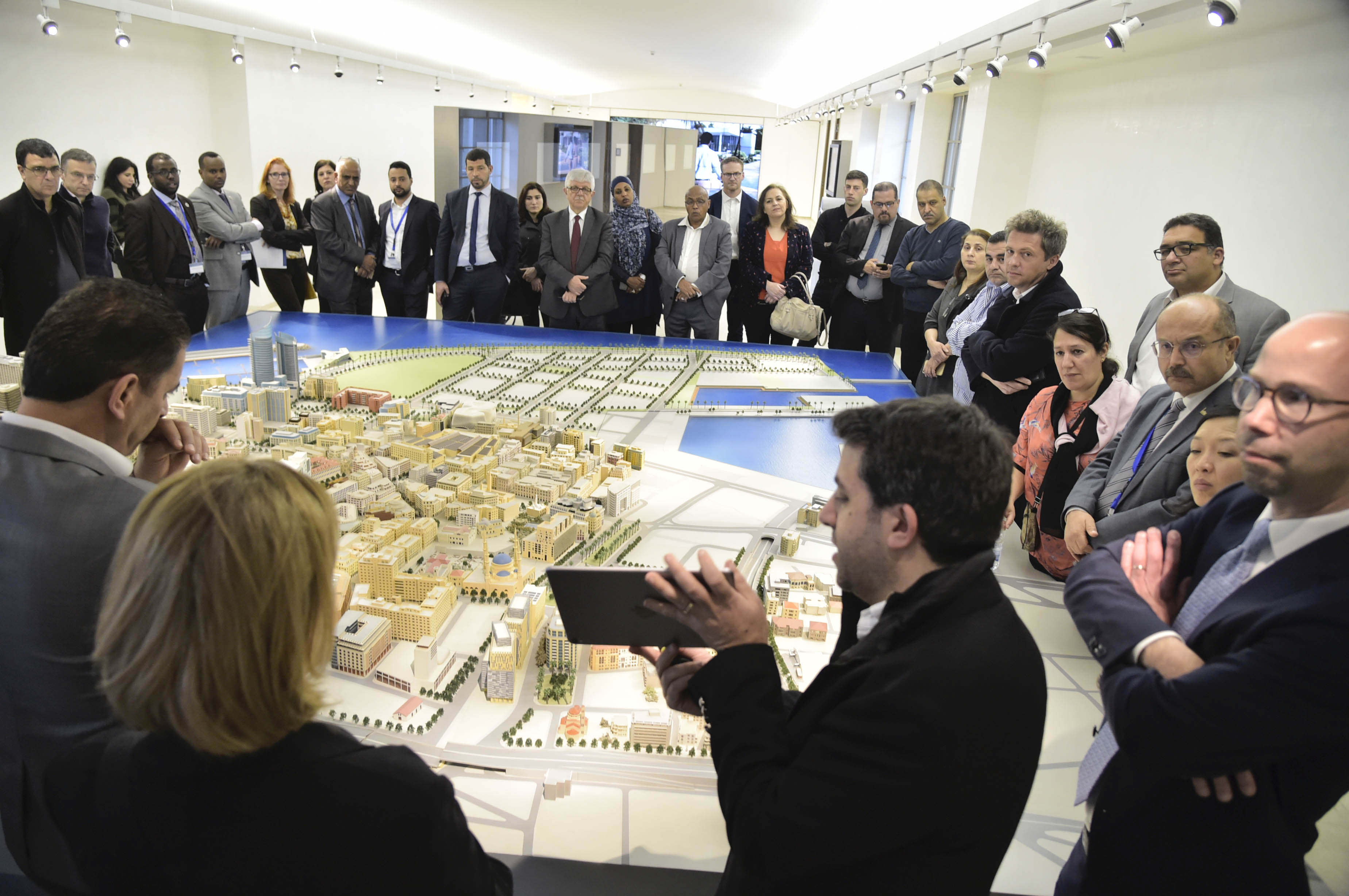
Delegates at the Middle East and North Africa (MNA) Regional Urban Resilience Conference (Photo credit: World Bank)
Beirut, Lebanon’s capital and home to more than a third of the country’s citizens, is vulnerable to many natural hazards, including earthquakes, drought, flooding, and tsunamis. This exposure is further exacerbated by the impacts of climate change and the city’s continuously growing population.
Recognizing the importance of addressing these challenges, the Municipality of Beirut worked with GFDRR and the World Bank to develop the Comprehensive Urban Resilience Master Plan for Beirut. The plan provides a road map for a resilient Beirut, and serves as a platform for securing both private and public investments to tackle the city’s resilience needs.
Informed by a comprehensive analysis of the city’s vulnerabilities and by inputs from a wide range of public, private, and nongovernmental stakeholders, the plan identified three priority areas for action: enhancing risk governance across the entire resilience cycle; reducing the risks posed by a multitude of shocks and stresses; and bolstering preparedness for major disasters by developing early warning systems and comprehensive plans for response and recovery.
RESULTS IN NUMBERS
49 high-level municipal and national representatives from 13 countries across the MNA region at the MNA Regional Urban Resilience Conference (Djibouti, Egypt, Iraq, Jordan, Kuwait, Lebanon, Morocco, Oman, Saudi Arabia, Somalia, Tunisia, West Bank-Gaza, and Yemen)
As part of the initiative’s second phase, the Municipality of Beirut, with support from the Facility and the World Bank, has been building on the information and risks identified thus far to conduct detailed micro-level hazard assessments. Seismic, tsunami, and coastal and urban flooding risks are now being assessed to inform Beirut’s long-term development plan.
To share lessons learned from its Comprehensive Urban Resilience Master Plan, and to glean critical resilience insights from its peers in the region, the Municipality of Beirut organized the first Middle East and North Africa (MNA) Regional Urban Resilience Conference in April 2019. Supported by GFDRR, the World Bank, and the 100 Resilient Cities program, the conference provided an invaluable opportunity for 49 high-level municipal and national representatives from 13 countries across MNA, and resilience experts from beyond the region, to exchange perspectives and discuss solutions on how to chart a more resilient future for cities in the MNA region.
The conference concluded with a communique which distilled participants’ shared understanding of urban resilience challenges, as well as practical recommendations for tackling these challenges. These recommendations offer a foundation for promoting and advancing the urban resilience agenda regionally, and evaluating progress in the discipline as it matures.
The MNA Regional Urban Resilience Conference is the first of its kind in the region and will become, in its successive editions, an important platform for exchanging experiences and presenting successful international practices to build resilient societies capable of meeting the challenges of development and climate change.
—H.E. Ms. Raya El Hassan, Minister of Interior and Municipalities, Lebanon
